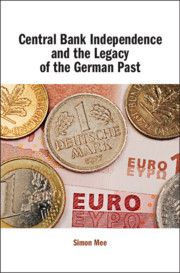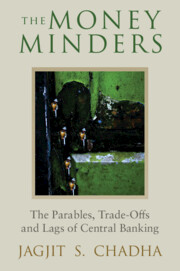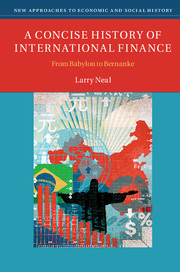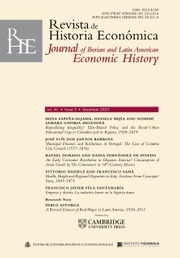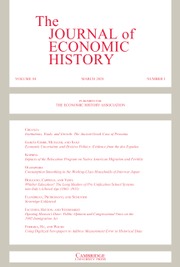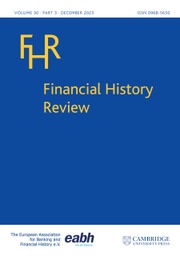Central Bank Independence and the Legacy of the German Past
The 2008 financial crisis led to more and more frequent political attacks on central banks. The recent spotlight on central bank independence is reminiscent of the fiery debates amongst Germany's political elites in 1949 on the same issue; debates that were sparked by the establishment of West Germany in that year. Simon Mee shows how, with the establishment of West Germany's central bank - today's Deutsche Bundesbank - the country's monetary history became a political football, as central bankers, politicians, industrialists and trade unionists all vied for influence over the legal provisions that set out the remit of the future monetary authority. The author reveals how a specific version of inter-war history, one that stresses the lessons learned from Germany's periods of inflation, was weaponised and attached to a political, contemporary argument for an independent central bank. The book challenges assumptions around the evolution of central bank independence with continued relevance today.
- Offers a new explanation of why Germany's political culture is preoccupied with inflation
- Sheds new light on contemporary debates about monetary policy and the role of a central bank in the Eurozone
- Highlights the extent to which a politicised version of Germany's history was exported to the European continent in the form of the European Central Bank's establishment
Reviews & endorsements
'Simon Mee has written an outstanding book that probes into how the Bundesbank connected up a particular view of history with interventions in politics as well as economics. He has skilfully uncovered the origins of the German concern with 'stability culture'.' Harold James, Claude and Lore Kelly Professor in European Studies, and Director, Program in Contemporary European Politics and Society, Princeton University
'Simon Mee tells a compelling story of how German central bankers used particular historical lessons to advance their institutional, and perhaps even personal, interests. This is required reading for anyone interested not only in German monetary history, but in the future of Europe.' Kevin O’Rourke, Chichele Professor of Economic History, University of Oxford
‘A fascinating book … Highly recommended’ I. Walter, Choice
‘In this well-written and intensively researched book, the author argues that the fear of inflation and the love of central bank independence in Germany are not the natural product of memories from the 1920s, but a social construct framed in the domestic policy debates after 1945 by an active communication strategy devised by the central bank.’ Eric Monnet, The Journal of Economic History
‘Mee's great achievement is to have shed light on the origins of Germany's monetary stability myths.’ Albrecht Ritschl, Economic History Review
'Simon Mee has written a fluent and compelling account of one the most important financial institutions in Europe which should be read by anybody with an interest in the history of modern Germany, or the role of central banks.’ Sean Byrne, Zeitschrift für Unternehmensgeschichte vol. 66, no. 2, 2021
‘This fine contribution will appeal to anyone interested in German monetary and central bank history per se, as well as to those interested in broader themes related to the postwar German economy.’ Timothy W. Guinnane, EH.net (Economic History Association)
Product details
October 2019Hardback
9781108499781
368 pages
235 × 158 × 21 mm
0.74kg
13 b/w illus. 3 tables
Available
Table of Contents
- Introduction
- 1. In search of the Reichsbank
- 2. The Bank deutscher Länder and the foundation of West Germany, 1948–51
- 3. Adenauer's challenge: the 'Gürzenich affair' and the Bank deutscher Länder, 1956–7
- 4. The shadow of national socialism: Karl Blessing and the Bundesbank in 1965
- 5. The Bundesbank, social democracy and the era of the 'Great Inflation', 1970–78
- Conclusion.

